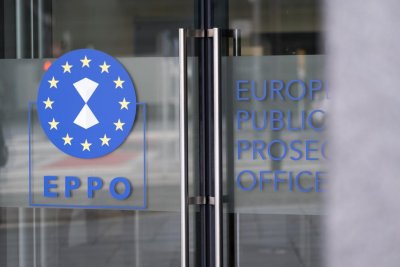
On 22 September, Bulgaria marks the anniversary of its declaration of independence. By tradition, celebrations of Independence Day are held in the old capital Veliko Tarnovo, where the historic act was proclaimed in 1908.
On the night before 22 September, the then Prime Minister Alexander Malinov welcomed Prince Ferdinand I on board the naval steamer 'Han Krum' near Ruse. From there, the entire Bulgarian government and the Prince travelled on to Veliko Tarnovo. During a stop at Dve Mogili station, Malinov drafted the Manifesto of Independence, which was signed by Ferdinand and the ministers.
Bulgaria’s independence was formally declared on 22 September 1908 in the Church of the Forty Holy Martyrs in the old capital, where Prince Ferdinand assumed the title of Tsar (King) of the Bulgarians. With this act, the Bulgarian state cast off its political and financial dependence on the Ottoman Empire, imposed by the European Great Powers under the Treaty of Berlin.
The holiday has been officially observed since 1990 and will be marked with ceremonies across the country. The Speaker of the National Assembly, Natalia Kiselova, will also take part in the official events. Commemorations will continue in the city centre, where wreaths and flowers will be laid at the Mother Bulgaria monument in tribute.
The highlight of the celebrations in the old capital will be the solemn roll call and fireworks display, starting at 19:30 on Tsar Asen I Square, broadcast live on BNT.
***
The independence of Bulgaria from the Ottoman Empire was proclaimed on 22 September by Prince Ferdinand of Bulgaria.
In 1878, when liberated from Ottoman rule, Bulgaria was granted autonomy as the Principality of Bulgaria. Thirty years later, the independence of Bulgaria was formally proclaimed at the Holy Forty Martyrs Church in the old capital, Veliko Tarnovo. As a result, Bulgaria's status was promoted to that of a kingdom. Ferdinand adopted the title of Tsar (King).
Bulgaria's declaration of independence was followed by Austria-Hungary's annexation of Bosnia and Herzegovina the following day.
Bulgaria responded to the Ottoman Empire’s threats of war with military mobilization but at the same time declared readiness for peaceful settlement. With the joint violation of the Treaty of Berlin, both by Sofia and Vienna, and because the Great Powers were not ready for a large-scale war, the efforts were focused on diplomatic recognition of Bulgaria’s independence.
The independence of Bulgaria was internationally recognised by the Great Powers in the spring of 1909.
Bulgaria's Liberation from five centuries of Ottoman domination came on 3rd of March, 1878 after the Russo-Turkish War, but recognition of its independence was a long process.
For 30 years, from the liberation in 1878 until the proclamation of independence, Bulgaria was still technically under the suzerainty of the Sublime Porte and a tributary vassal state to the Ottoman Empire.
The independence day is marked with a solemn ceremony, which as part of the tradition is held on the night of 22nd of September in Veliko Tarnovo, which Tsar Ferdinand I and the then Prime Minister Alexander Malinov chose as the site for the proclamation of independence.
